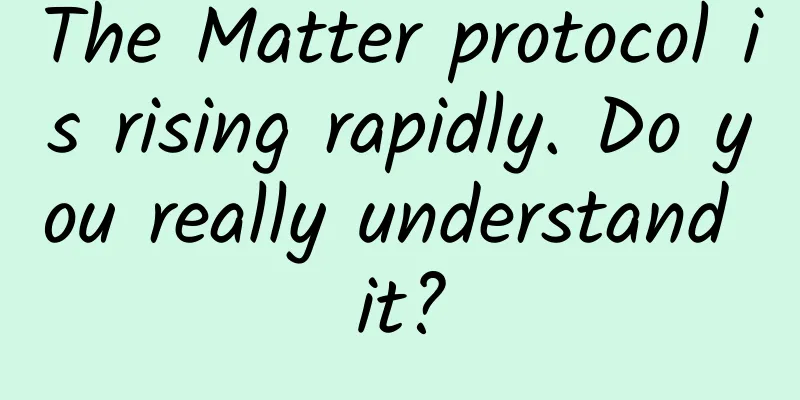[Hotspot] ZTE was fined $1 billion but escaped death. Review of the whole ZTE incident
![[Hotspot] ZTE was fined $1 billion but escaped death. Review of the whole ZTE incident](/upload/images/67eba43a68378.webp)
|
Last night Beijing time, Xinhua News Agency and foreign media both released the latest news, saying that US Commerce Secretary Ross had just officially announced that a new settlement agreement had been reached with China's ZTE Corporation. The U.S. Department of Commerce issued a statement on the same day saying that Ross announced on the same day that ZTE and its affiliates had agreed to pay fines and take compliance measures to replace the U.S. Department of Commerce's previous ban on the company's purchase of components from U.S. suppliers. Paying a huge fine, the US compliance team entered ZTE The statement pointed out that according to the new settlement agreement, ZTE will pay a fine of US$1 billion and prepare another US$400 million to be escrowed by a third party before the US Department of Commerce will remove ZTE from the ban list. In addition, according to foreign media CNBC, in addition to paying a huge fine, one of the conditions that ZTE must accept is that the United States selects a compliance team to enter ZTE and requires ZTE to replace its board of directors and executive team within 30 days. "We are actually embedding a compliance function of our choosing into the company to monitor it in the future. They will pay for these people, but they will report to the new chairman," Ross said. Ross told CNBC last week that the U.S. stock market would “adjust” to any changes in U.S. trade policy, and he said ending tariff breaks for Canada and Mexico reflected a lack of progress in NAFTA talks. It is reported that the Trump administration decided last week to impose tariffs of 25% and 10% on steel and aluminum imported from Canada, Mexico and the European Union, respectively. The three allies of the United States quickly announced retaliatory measures. ZTE escaped a life-or-death crisis; Chinese companies should take this as a warning As one of the world's major integrated communications solution providers, ZTE maintains good cooperative relations with many U.S. suppliers and supports nearly 130,000 high-tech jobs in the U.S. Experts pointed out that since ZTE has close cooperation with many U.S. companies, the U.S. government's export control measures on ZTE will also cause losses to ZTE's U.S. suppliers such as Qualcomm and Intel. China Media Group International Online commented that after nearly two months of negotiations, the ZTE incident finally had the latest result. This result was hard-won and deserves deep thought and cherishment from all parties. Among them, ZTE, the party involved, finally escaped and regained its life. Of course, judging from the content of the agreement signed with the US, the huge fine, the adjustment of the board of directors and management, and the acceptance of US supervision at any time... The price paid by ZTE can be said to be quite heavy and painful. ZTE's mistakes began in 2010. Driven by commercial interests, it risked breaking the basic rules of cooperation with the United States and violated U.S. regulations, and was punished by commercial transaction rules and laws and regulations. Objectively speaking, this is a price a multinational company must pay for violating the spirit of the contract and the consequences it must bear for disregarding laws and regulations. It is worth taking a warning from Chinese companies and even all multinational companies. The commentary pointed out that the ZTE incident was just an individual case of corporate violations, but the Chinese government, out of consideration for the people, invested a lot of resources in solemn representations to the United States, and finally saved ZTE's life. However, this does not mean that Chinese companies will look to the government to take the blame when something goes wrong in the future. International companies should have an international style, not be "giant babies", and not use commercial interests to coerce the government. This incident also sounded a wake-up call for Chinese companies. The ZTE incident does not represent the overall outlook of Chinese companies, but it is a mirror for Chinese companies. The situation in which China's key core technologies are controlled by others has not been fundamentally changed. Chinese companies must quickly grasp the core technology, the lifeline, firmly in their own hands. A review of the ZTE incident
On April 16 this year, the US Department of Commerce activated a denial order against ZTE, which will prohibit US companies from selling parts, goods, software and technology to ZTE for the next seven years. On the morning of April 20, ZTE issued a statement saying: Before the relevant investigation is completed, the U.S. Department of Commerce's Bureau of Industry and Security insisted on imposing the most severe sanctions on the company, which is extremely unfair to ZTE and unacceptable! From May 3 to 4, China and the United States held the first round of trade consultations in Beijing, and had candid, efficient and constructive discussions on Sino-US economic and trade issues of common concern. During this exchange, China made solemn representations to the United States on the ZTE case. The United States said that it attached importance to China's representations and would report China's position to the US President. On May 9, ZTE issued an announcement stating that due to the activation of the denial order by the US Department of Commerce, the company's main business activities have been unable to proceed. However, the company has sufficient cash and adheres to its commercial credit under the premise of legality and compliance. On May 13, Trump tweeted that he was working with China to provide a way for ZTE to quickly resume business, and had ordered the Ministry of Commerce to address the issue. The ZTE incident has taken a turn for the better. From May 15 to 19, at the invitation of the US government, Liu He, a member of the Political Bureau of the CPC Central Committee, visited the US. Liu He continued to consult with the US economic team led by US Treasury Secretary Mnuchin on economic and trade issues between the two countries. On May 13, Trump tweeted: "We will provide ZTE with a way to resume business very quickly. Many jobs in China have been lost (due to the ZTE incident). The (US) Department of Commerce has been instructed to get this done." On May 22, it was reported that Trump proposed a plan to impose a heavy fine on ZTE and reorganize its management as a condition for the US government to withdraw the severe punishment measures that had previously put ZTE in trouble. On May 29, Xu Huijun, executive vice president and chief technology officer of ZTE, and Huang Dabin, who was in charge of the company's operations, were fired. Prior to this, Cheng Gang, chief compliance officer and chief legal officer of ZTE, had been fired, and several other senior executives were fired and reassigned. On June 7, the U.S. Department of Commerce officially announced that it had reached a new settlement agreement with China's ZTE Corporation. However, ZTE needs to pay a fine of $1 billion and prepare another $400 million for a third party to keep. In addition, the United States has selected a compliance team to enter ZTE and requires ZTE to replace its board of directors and senior management team within 30 days. The ZTE incident has officially come to an end. |
<<: The Internet of Things has become a popular entry point for domestic operators’ eSIM technology
>>: The struggle between operators and users: Who decides my package?
Recommend
spinservers: $19/month - Dual E5-2670, 8G memory, 500G disk, 10TB monthly bandwidth, San Jose/Dallas data center
The tribe has shared information about spinserver...
Video websites in Europe reduce bitrates to ease the burden on broadband operators
During the epidemic prevention and control period...
The basics of the commonly used mainstream dynamic routing protocol OSPF and OSPF message types. Learn about them in one minute
1. Basic Concepts of OSPF OSPF is based on IP pro...
In the second half of cloud computing, how can operators embrace open source?
[[225474]] Editor's Note In recent years, wit...
The world's IPv4 addresses are officially exhausted!
The long-feared exhaustion of global IPv4 address...
[11.11] Megalayer: US server 99 yuan/month, Hong Kong server 199 yuan/month, Hong Kong/US VPS monthly payment 9.9 yuan
Megalayer released a promotional plan for this ye...
5G in 2021: Expectations and Developments
5G is the fastest growing mobile technology in hi...
How the global 5G network will reshape future defense strategies
Explore the impact of global 5G networks on futur...
16 WiFi withdrawal triggers myths: Is public WiFi coming to an end?
Recently, 16WiFi, which provides free WiFi Intern...
How to resolve the conflict between 5G intermediate frequency and satellite C band?
At present, various regions continue to accelerat...
Intent-based networking: Closing the network complexity gap
In the past decade, networks have undergone a var...
Sharktech: $99/month-2*E5-2670V2/32GB/500G SSD/1Gbps unlimited traffic/Los Angeles high defense
Sharktech cancelled the lowest-priced $59/month L...
I've learned a lot! 5G is actually "changing society" in this way
Smart cities, smart grids, smart grazing/planting...
What are the main application scenarios of 5G?
5G networks offer greater bandwidth than previous...
Enterprises generally believe that 5G has great potential but still face cost and security pressures
Early on February 27, a new global study by Accen...









